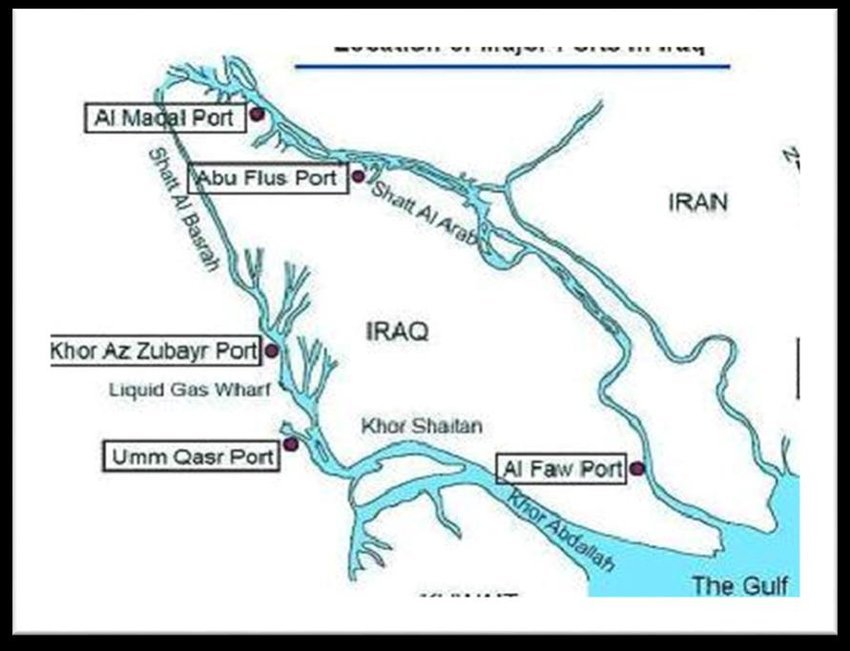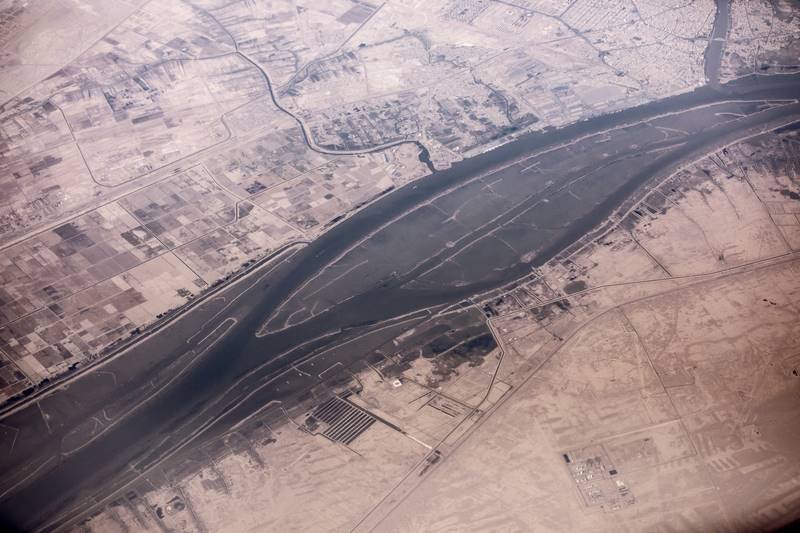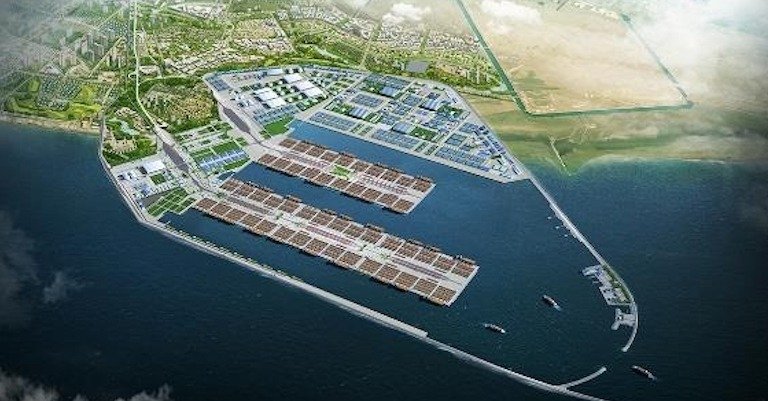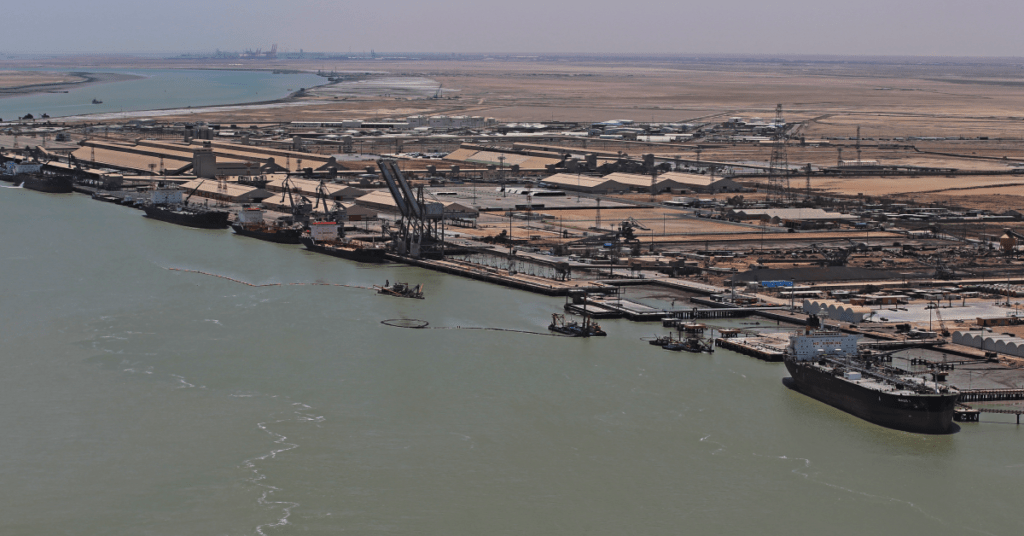Iraq is a country located in the Middle East, with a population of approximately 40 million people. The country has a rich history and culture, but it has also been the site of numerous conflicts and political instability over the years.
Iraq, a Middle Eastern country with a population of around 40 million, has faced numerous challenges in recent years in terms of its shipping, trade, and economy. The country’s rich cultural heritage and diverse population have been overshadowed by political instability, sectarian tensions, and terrorism threats.
One of the most significant issues Iraq faces is the heavy dependence on oil exports, which accounts for a substantial portion of the country’s economy. With the volatility of global oil prices, Iraq’s economy remains vulnerable to fluctuations, impacting the country’s trade and shipping activities. Additionally, corruption has been a significant problem in Iraq, further hindering its economic progress.
Iraq’s Trade, Economy & Shipping

Despite these challenges, Iraq has made efforts to rebuild its infrastructure and improve trade relations with other countries. The government has taken steps to combat corruption and improve services for its citizens, including investing in infrastructure projects, such as port expansions, road networks, and railways. Iraq has also been working to diversify its economy and reduce its dependence on oil exports by investing in other sectors such as agriculture and tourism.
Despite these efforts, Iraq still faces significant challenges in the shipping and trade sectors. The country’s transportation infrastructure requires modernization, which is critical for efficient import and export activities. Additionally, political instability, corruption, and sectarian tensions have resulted in delays and disruptions in the country’s shipping and trade activities.
However, despite these challenges, Iraq remains an important player in the global shipping and trade sector, with several seaports, including Umm Qasr, Basra, and Khor Al Zubair, which serve as major gateways to the Middle East and beyond. As the country continues to rebuild and address its challenges, it will be important for the international community to support Iraq’s efforts to improve its shipping and trade sectors, which will have a significant impact on the country’s economic growth and prosperity.
Major Ports in Iraq
Oil export from Iraq is mainly done from its ports which are an important component of the country’s economy. This is why, even amidst political strife, Iraq has undertaken many port development and expansion projects to strengthen its maritime sector.
However, Iraq’s sole reliance on its oil industry has led to the sidelining of the other sectors. This has generated the problem of unemployment in the country, with around 25-30% population, struggling to get decent work.
1. Umm Qasr Port

Umm Qasr Port is the largest and busiest port in Iraq, located on the northwest coast of the Persian Gulf, near the border with Kuwait. It is a vital gateway for Iraq’s economy and handles the majority of the country’s imports and exports, including food, medicines, machinery, and other goods.
The port has several terminals, including a container terminal, a grain terminal, and a general cargo terminal. It also has facilities for the loading and unloading of crude oil and refined petroleum products.
In recent years, the Iraqi government has invested in upgrading and expanding the port’s infrastructure to increase its capacity and efficiency. The port is also connected to major road and rail networks in Iraq, allowing for seamless transportation of goods across the country.
Despite ongoing security concerns and occasional disruptions to operations, Umm Qasr Port remains a crucial lifeline for Iraq’s economy and trade with the rest of the world.
Here are some more facts about Umm Qasr Port:
- The port was originally built in the 1950s by the British, and was later expanded by the Iraqi government in the 1970s.
- Umm Qasr Port has a total of 21 berths, with a maximum draft of up to 12 meters.
- The port handles over 90% of Iraq’s foreign trade, with imports accounting for about 80% of the total trade volume.
- The container terminal at Umm Qasr Port has a capacity of 900,000 TEUs (twenty-foot equivalent units) per year.
- The port is managed by the General Company for Ports of Iraq, which is a state-owned company responsible for the management of all Iraqi ports.
- Umm Qasr Port is a key hub for trade with neighboring countries such as Kuwait, Iran, and Saudi Arabia.
- In addition to its commercial activities, Umm Qasr Port also serves as an important gateway for humanitarian aid and reconstruction efforts in Iraq.
- The port has been affected by security issues, including piracy and smuggling, as well as occasional labor disputes and protests.
2. Al Basrah Oil Terminal

The Al Basrah Oil Terminal (ABOT) is a major offshore oil terminal located near the Port of Basra, in the southern part of Iraq, near the Persian Gulf. It is one of the largest and most important oil-loading facilities in the world and is managed by the Iraqi state-owned South Oil Company.
Crude oil from oilfields in southern Iraq is transferred via pipelines to this terminal. It can handle 3 million barrels of crude oil every day when all its four tanker berths work at their maximum capacity.
This terminal has two platforms called A and B. Both of them have two berths each, for loading. Berth 1 and 2 of platform A and Berth 4 of B can handle oil tankers weighing around 350,000 DWT.
Berth 3 can accommodate tankers with a weight of 90,000-350,000 DWT. Recently two SPM’s have become operational. They can handle VLCC tanks.
Here are some additional facts about the Al Basrah Oil Terminal:
- The terminal consists of two offshore platforms: the Main Gathering Platform (MGP) and the Remote Single Point Mooring (RSPM) facility. The MGP is located about 25 kilometers offshore, and the RSPM is located about 15 kilometers offshore.
- The terminal is capable of loading up to two million barrels of oil per day, which accounts for a significant portion of Iraq’s oil exports.
- The ABOT is connected to the onshore pipeline network, which carries crude oil from the oil fields in southern Iraq to the terminal for export.
- The terminal is staffed by hundreds of workers, including engineers, technicians, and security personnel.
- The ABOT has been the target of attacks by militants in the past, which have caused disruptions to oil exports.
- The Iraqi government has invested in the modernization and expansion of the ABOT to increase its capacity and efficiency, and to improve its security.
- The ABOT is an important piece of infrastructure for Iraq’s economy, and its continued operation is critical to the country’s economic development and stability.
3. Port of Basra/ Al-Maqal Port

The Port of Basra is located in the city of Basra, in the southern part of Iraq, near the Persian Gulf. It is one of the largest and most important ports in the Middle East, and is primarily used for the export of crude oil and other petroleum products. The port is managed by the Basra Ports Authority, which is a state-owned company responsible for the management of all ports in the Basra Governorate.
The Al Maqal Port also known as the Port of Basra is located in Basra city, near the Persian Gulf. The port was opened in 1919 by the British when they occupied the region of Mesopotamia.
The port has 15 berths whose length is 3000m. The berths 1-8 are not currently operational and are filled with defunct equipment such as cranes and old ships. However, small trading operations are undertaken at the eastern side of the port.
The port has storage space and warehouses which are in decent condition. Berth 9 has a huge warehouse, used by Red Cross till 2017.
The port can handle vessels weighing about 5000 tonnes, with a total capacity of 600 TEU. The port has been rather deserted since 2017. It used to be a busy port till 2015 when it handled imports of cement and saw 100 ships every month. But now, even the railways connecting the port to important cities are not functional.
The port doesn’t have much equipment. It only has one mobile crane with a capacity of 65 tonnes, one reach stacker with a capacity of 50 tonnes, and two forklifts that can lift 5 tonnes at once.
The port has 15,000 sq m of storage space and 55 reefer points. Ro-Ro facility is not provided at the port. Bulk cargo can be taken care of using forklifts, available at the Container Terminal. Also, 10,000m2 warehouse space is available at the main terminal.
Here are some additional facts about the Port of Basra:
- The port has a total of 22 berths, with a maximum draft of up to 12 meters.
- The port handles over 80% of Iraq’s oil exports, making it a crucial part of the country’s economy.
- The Basra Oil Terminal, which is located near the Port of Basra, is the largest offshore oil-loading facility in the Persian Gulf.
- The port has been affected by security issues in the past, including attacks by militants and piracy.
- In recent years, the Iraqi government has invested in upgrading and expanding the port’s infrastructure to increase its capacity and efficiency.
- The port is connected to major road and rail networks in Iraq, which allows for seamless transportation of goods across the country.
- The Port of Basra is a key hub for trade with neighboring countries such as Kuwait, Iran, and Saudi Arabia.
4. Khor Al-Zubair Port

Khor Al-Zubair Port is a major seaport located in the southern part of Iraq, near the city of Basra. The port is one of the largest and busiest ports in Iraq, and it plays a critical role in the country’s trade and commerce, particularly in the areas of oil and gas, agriculture, and construction materials.
Here are some additional facts about Khor Al-Zubair Port:
- The port has a total of 21 berths, including 12 commercial berths and 9 berths for government use.
- The port is capable of handling a wide variety of cargo, including dry bulk, liquid bulk, and containerized cargo.
- The port is a major hub for the export of crude oil and other petroleum products, with many oil tankers docking at the port to load up on Iraqi oil.
- The port is also a key entry point for imported goods such as food, clothing, and electronics, which are transported by ships from around the world.
- In addition to oil and consumer goods, the port also handles a significant amount of construction materials, such as cement and steel, which are used in Iraq’s ongoing reconstruction efforts.
- The Iraqi government has invested heavily in the modernization and expansion of Khor Al-Zubair Port, with the aim of increasing its capacity and efficiency, and improving its infrastructure and security.
- The port has been the target of attacks by militants in the past, which have caused disruptions to trade and commerce.
- The continued modernization and expansion of Khor Al-Zubair Port is expected to be a key driver of economic growth in Iraq, and will play an important role in the country’s ongoing efforts to rebuild and develop its infrastructure.
Overall, Khor Al-Zubair Port is a critical piece of infrastructure for Iraq’s economy, and its continued growth and development will be essential for the country’s future prosperity.
Read More about: Khor Al-Zubair Port: A Key Hub for Iraq’s Trade
5. Al-Faw Port
Al-Faw Port, also known as Faw Al-Kabeer Port, is a major seaport located on the Al-Faw Peninsula in southern Iraq. The port is one of the largest and most important ports in Iraq, and it plays a significant role in the country’s trade and commerce, particularly in the areas of oil and gas, agriculture, and construction materials.

The port has a total of 32 berths, including 22 commercial berths and 10 berths for government use.. The port is capable of handling a wide variety of cargo, including dry bulk, liquid bulk, and containerized cargo.
The port is a major hub for the export of crude oil and other petroleum products, with many oil tankers docking at the port to load up on Iraqi oil.
The port is also an important entry point for imported goods such as food, clothing, and electronics, which are transported by ships from around the world.
In addition to oil and consumer goods, the port also handles a significant amount of construction materials, such as cement and steel, which are used in Iraq’s ongoing reconstruction efforts.
Here are some additional facts about Al-Faw Port:
- The Iraqi government has invested heavily in the modernization and expansion of Al-Faw Port, with the aim of increasing its capacity and efficiency, and improving its infrastructure and security.
- The port has been the target of attacks by militants in the past, which have caused disruptions to trade and commerce.
- The continued modernization and expansion of Al-Faw Port is expected to be a key driver of economic growth in Iraq, and will play an important role in the country’s ongoing efforts to rebuild and develop its infrastructure.
They’re expanding Al-Faw Grand Port: Source
6. Abu Flous Port
The Abu Flous is a commercial port and deals with general cargo. It is a minor port on the western bank of the Shatt al Arab river. It is near the border of Iran and is connected by roads to the city of Basra.
The port has three quays, each 75 m long and 18 m wide. The length of the port is around 520 m. There are 9 forklifts, three operating at each quay. Their capacity is 5 tons each. The port also has a lighting tower and usually receives small ships and minor cargo laden boats.
Also read
- Alienbet Casino 100 Free Spins Bonus 2026
- Playolg Casino Login App Sign Up
- Cyber Spins Casino Login App Sign Up
- Free Spins No Wagering Requirements Uk Players
- Dollar 5 Minimum Deposit Casino United Kingdom

